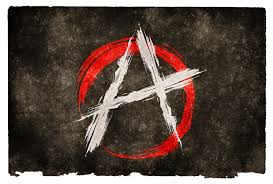Academic participation in social movements: A call for ethical review
31 December 2018
I’ve been an academic for some 35 years. Since 1991, I have been a (first assistant, then associate, then full) professor at Georgetown University in the philosophy department and since 1996 the program on justice and peace. For roughly the same number of years, I have been actively involved in social movements, working with dozens of organizations on campaigns around de-militarism and anti-imperialism, solidarity with Latin America, South Africa, Palestine, and others, LGBTQ equality, economic justice, immigrant rights, anti-fascism, and the movement for black lives. For the first decade or so of my academic life, these two occupations were fairly independent. Academia – where I focused on philosophy of language, logic, and epistemology – was my day-job, and I devoted 20 or so hours a week to movement work on the side. Since then, I have gradually moved toward a deeper integration, first by helping found and direct the Program on Justice and Peace, then developing courses around organizing, nonviolence, and peace studies, and in recent years devoting more of my research energy to issues of moral and political philosophy that are directly rooted in my activist worlds.
For example, I was centrally involved in building the Online Learning Platform, under the leadership of two Ferguson, Missouri natives – both activist-teachers. It’s Time To Listen is a project of the Truth Telling Project. This platform centers on short testimonies before panels of community elders by family members and friends of black folks killed by police violence, and includes a wide array of educational materials allowing interested groups to begin learning about, discussing, and working against White Supremacy, led by the voices of those most directly affected. Currently, I’m working with a historian friend/colleague/comrade writing a book on Revolutionary Nonviolence that will involve discussions with core members of revolutionary movements in various parts of the world.
These represent two ways that academics can use their particular skills to contribute to movements. The first was as pedagogical facilitator. The second aims to be a strategic and tactical intervention, an examination of ways that movements for fundamental social change can be more effective. (I think there are lots of recognizably philosophical issues here – understanding the nature of radical, as opposed to superficial, change, for example, or the relation between goals, strategy, and tactics, or the moral status of violence; to pick 3 that feature in the book.) Other academics might attempt to document social problems via sociological, medical, or environmental study with an eye to highlighting and publicizing these problems. Still others might catalogue historical or current movements and their strategy and tactics, or offer legal analyses of the status, actions, and risks of various movements.
The questions I want to raise here concern the role of academics who care to engage in this way. That is, I am interested in what is often called “solidarity research”. The solidarity researcher does not purport to be neutral regarding, say, White Supremacy. She is not seeking merely abstract descriptive accounts of social phenomena. But neither is she merely a random participant or polemicist. Rather, the goal of solidarity research is to do genuine research – however that is understood in the relevant domain – but as a part of a movement for justice, as a particular sort of contribution to social action.
Thus, the solidarity researcher is, by definition, in a different social position than either the outsider to the movement or the standard movement participant. This is not to say that non-researcher participants are undifferentiated. There are those whose expertise and contribution lies in grant-writing, legal support, on the ground tactics, arts and media, press, or, indeed, armed struggle. All of these are distinct roles that involve their own specific moral issues. But my concern here is with the researcher role and I do think there are some issues specific to this role.
One issue is authority, which has both a positive and a negative dimension. On the positive side, we have real skills that we can contribute. We know how to do serious research and often have the time and resources to pursue issues others do not. We have pedagogical, rhetorical, and other skills. So when, for example, my partner offered her skills as a social science researcher to do surveys on community reactions to various forms of anti-war protest, she was contributing something most movement activists could not do as well, and would not have time to prioritize. But there is a negative side as well.
If we are working with disempowered communities, or socially discounted ones, we run the risk of reinscribing these dimensions of oppression. If a lawyer solves an immediate problem for a group of tenants, she runs the risk of further instilling the idea that they cannot solve their own problems and need to wait for the privileged savior. If I take the spotlight to speak at the United Nations on behalf of Palestinian refugees about the relation between governmental positions and grassroots activism – as I was asked to do, by Palestinians, on the grounds that my academic credentials and relative safety would allow me to say things that others cannot, and be taken seriously saying them – then while I arguably contribute to those I am in solidarity with, I nonetheless am in the position of a non-Palestinian speaking for Palestinians, with all the negative social implications that go with that.
Further, the more involved we become, and the more convinced we become that our expertise give us epistemic privileges – we understand the complexity of the issues better; know more about the relevant data, etc – the more likely it is that our own agenda, as well as our many implicit biases will come to dominate the work. This is far from an abstract possibility. Groups all over the world have documented how experts, well funded NGOs, and foreign “solidarity” movements have ended up blunting or diverting the message and direction of local movements.
Note that these issues arise with the very best of intentions, so we are not speaking here of graft, hidden agendas, etc. And these problems are hard. Working out a plausible set of tactics and ethics around them is part of my current work. I believe politically engaged academics need to take these issues every bit as seriously as established institutional review boards take more conventional ethical questions regarding research. Will our research be of value to those we work with? Will our actions in carrying out that research put people at risk – either such direct risks as government repression, or less obvious and direct risks of being further marginalize? What authority will the movement we study have over our methods, process, and results? Who will receive credit for the work? If there are grants or other funding involved, who will benefit from it?
A core member of Ferguson Frontline – the protest, and later broad social movement organization, that led the protests in the aftermath of the police killing of Mike Brown – once said to me (apologies, but this is a direct quote): “If one more white bitch from up north comes down here making $75,000 a year from an NGO and tells me how to run my movement, I’m gonna smack her upside the head.” I relate this story simply to emphasize a typically deep negative reaction to a sense of being used by NGOs, researchers, and other outsiders. Regardless of one’s view about the appropriateness of my friend’s sentiment – personally, I think she was fully justified – this sort of reaction demonstrates that our involvement can be destructive of the kinds of community solidarity that we purport to build.
As I see it, there are many of us who want to contribute, from our positions of prestige, privilege, and power, to social movements – and we should. We all recognize that this kind of work carries with it special dangers of unintended harm. And yet we, for the most part, navigate this individually, case-by-case. At best, those of us who think about these things and take them seriously chat with one another, or consult a bit of literature discussing the issues. But no one would think that sufficient in the case of, say, a drug trial. So isn’t it time we take our engaged activism as seriously? Could we not pull together a broad group of activist-academics to begin assembling best practices, forming some sort of review process, at the very least sharing accounts?
Picture: Nicholas Raymond, Anarchy Grunge Flag from Flickr CC.BY2.0
- July 2024
- June 2024
- May 2024
- April 2024
- March 2024
- February 2024
- January 2024
- December 2023
- November 2023
- October 2023
- September 2023
- August 2023
- July 2023
- June 2023
- May 2023
- April 2023
- March 2023
- February 2023
- January 2023
- December 2022
- November 2022
- October 2022
- September 2022
- August 2022
- July 2022
- June 2022
- May 2022
- April 2022
- March 2022
- February 2022
- January 2022
- December 2021
- November 2021
- October 2021
- September 2021
- August 2021
- July 2021
- June 2021
- May 2021
- April 2021
- March 2021
- February 2021
- January 2021
- December 2020
- November 2020
- October 2020
- September 2020
- August 2020
- July 2020
- June 2020
- May 2020
- April 2020
- March 2020
- February 2020
- January 2020
- December 2019
- November 2019
- October 2019
- September 2019
- August 2019
- July 2019
- June 2019
- May 2019
- April 2019
- March 2019
- February 2019
- January 2019
- December 2018
- November 2018
- October 2018
- September 2018
- August 2018
- July 2018
- June 2018
- May 2018
- April 2018
- March 2018
- February 2018
- January 2018
- December 2017
- November 2017
- October 2017
- September 2017
- August 2017
- July 2017
- June 2017
- May 2017

